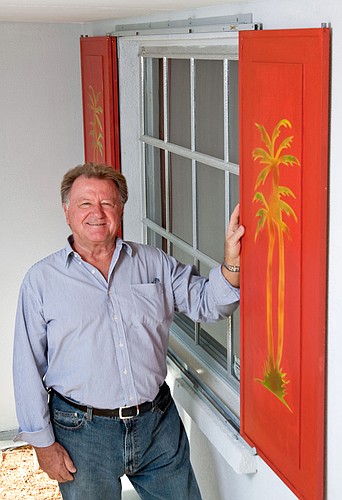- December 15, 2025
-
-
Loading

Loading

Herb Wutz thinks he has a million-dollar idea for an industry that's been battered and bruised by the recession: attractive hurricane shutters.
Wutz, a German-born entrepreneur who has lived on Siesta Key for 20 years, wants to bring Florida style and design to the functionality and necessity of hurricane shutters. His answer is a product manufactured through a company he named MFS Engineering — multi-functioning shutters.
Wutz's shutters are a patented design of plywood and aluminum that is permanently placed into the wall of the home on the sides of a window. The shutters come with a built-in slide and tracking mechanism, so each one can open and close easily. The shutters also come in bright colors with Florida-style designs painted on the front, a major improvement from most of the dark and dreary hurricane shutters currently on the market.